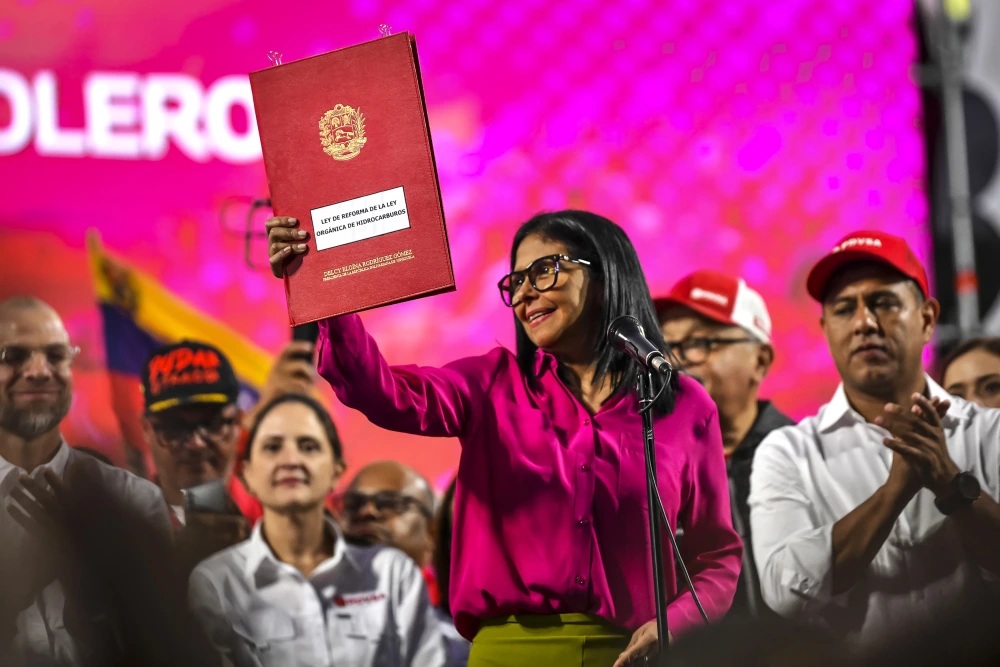Electoral court ruling paralyzes Martinelli corruption trials

The ruling of March 22 by the magistrates of the Electoral Court (TE) Alfredo Juncá and Heriberto Araúz, who maintained the criminal electoral jurisdiction of former President Ricardo Martinelli on the basis that the principle of specialty had not been respected, implies a clear excess of functions of these officials in light of the Constitution.
In the decisions on electoral privileges, the TE does not come to know the merits of the cause for which the removal of this jurisdiction is requested; Much less can this court affirm that there are guarantees, such as the principle of specialty in an extradition treaty, and impose it on the Judicial Branch, because this is not its function, as is developed in articles 142, 143, 144 and 145 of the Constitution.
US State Department
Regarding the principle of specialty, the US State Department has been reiterative in pointing out that this guarantee does not apply to Martinelli, which is why the Public Ministry and the Judicial Branch can advance in all criminal proceedings for actions committed before his extradition, in June 2018. In this case, the alleged principle does not exist.
The principle of specialty, the procedural guarantee that the 1904 treaty between the United States and Panama grants extradited persons so that they are not tried for crimes other than those requested, was once again the protagonist of legal deliberation.
However, it was not a decision of the Judicial Body, but a ruling by the magistrates of the Electoral Court (TE) Heriberto Araúz and Alfredo Juncá, who maintained the criminal electoral jurisdiction of former President Martinelli (extradited by the United States in 2018) , based on the alleged existence of the specialty principle.
In 2019, the Public Ministry began processing a request for an exception to the specialty principle by the United States government. Although the request was never completed, the State Department informed -repeatedly through different channels- the government of Panama that, in the opinion of the US Martinelli no longer had the protection of the aforementioned principle and, therefore, the Public Ministry did not have to request authorization to prosecute him for crimes other than the 4 criminal types contained in the extradition request for the wiretapping case.
The decision of the majority of the plenary session of the TE on March 22 to deny the lifting of Martinelli’s criminal electoral jurisdiction, essentially has one effect: to paralyze the judicial proceedings against him.
Article 262 of the Electoral Code says: “The violation of criminal electoral jurisdiction is grounds for nullity of the process.” This means that the New Business and Odebrecht cases carried out in the Third Liquidator Court, , in relation to Martinelli, cannot continue. If the processes against the former president continue, this action would annul them completely. As for the other defendants, the cases can continue, without any setbacks.
The situation described above could produce a judicial panorama similar to the wiretap case, in which Gustavo Pérez and Alejandro Garuz, executive secretaries of the National Security Council in the Martinelli government were sentenced in a separate process. in which the former president was not a party. These convictions are currently contested by the aforementioned former officials. On the other hand, Martinelli was processed separately and finally acquitted.
The options
Numeral 11 of article 143 of the Political Constitution of Panama, establishes the jurisdictional attribution of the Electoral Court in the following way: “Hear privately the resources and actions that are presented against the decisions of the electoral criminal courts and of the General Electoral Prosecutor’s Office. Decisions on electoral matters of the Electoral Court can only be appealed before it and, once the legal procedures have been completed, they will be final, irrevocable and binding. Against these decisions, only the appeal of unconstitutionality may be admitted.
The constitutional mandate only allows the appeal for reconsideration to be filed at the same plenary session of the Electoral Court that decided to maintain the jurisdiction of the former president and to file an action of unconstitutionality against that sentence. The appeal for reconsideration can only be filed by Judge Baloisa Marquínez, of the Third Liquidator Court, while the action of unconstitutionality can be filed by any person.
Without a change in the decision of magistrates Araúz and Juncá, who maintained the criminal electoral jurisdiction of the former president, ordinary justice cannot judge him. Although the criminal electoral jurisdiction ends after the internal elections of the Realizing Goals (RM) party to choose the secretaries of youth and women, on April 24, as soon as that group begins another process of internal elections, the Martinelli’s criminal electoral jurisdiction would be activated automatically, so criminal justice would not have enough time to proceed during the period of the pause in the jurisdiction.
The reason why Araúz and Juncá decided that Martinelli’s criminal electoral jurisdiction is in force is totally irrelevant: the existence of a supposed principle of specialty. This should be the subject of the criminal process that is carried out in the Judicial Branch. Only the said body could recognize the validity of this principle of specialty, recognition that has not been made by any authority of the Public Ministry or the Judicial Branch.
The decisions of the different courts of the Judicial Branch in this matter have been contrary to the affirmation that there is a procedural guarantee of the principle of specialty in these cases. The only relevant thing about the Electoral Court’s decision is not its justification, but its effect, which is to put a pause on the processes so that the New Business case reaches the statute of limitations (at the beginning of the year 2023).
The way to constitutionally challenge this decision of the Electoral Court is the healthiest for Panamanian democracy, however, it requires that the Supreme Court of Justice act quickly, for example, declaring itself in permanent session, once the action of unconstitutionality is presented, in such a way that the process of deliberation, drafting and simultaneous reading of the draft ruling can be a matter of weeks and not years.
Regarding the affirmation of the validity of the specialty principle, it would only be enough for the interested parties to present a certification from the US State Department indicating that it is in force and that, therefore, other crimes cannot be prosecuted. As such a certification, in these terms, is unlikely to exist, it is necessary to bring the Electoral Court to its knees, to obtain a Pyrrhic victory.
Rodrigo Noriega, LA PRENSA, Analyst





